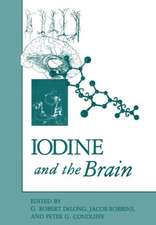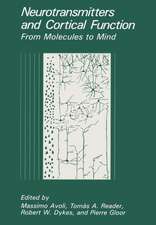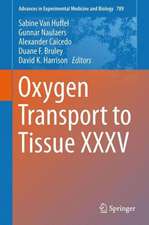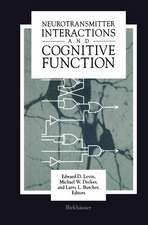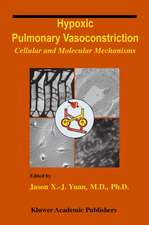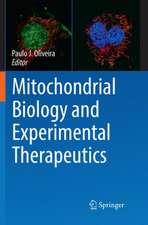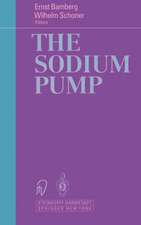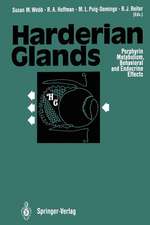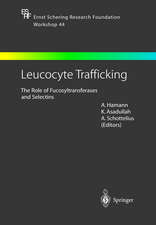Aging: From Fundamental Biology to Societal Impact
Editat de Paulo J. Oliveira, Joao O. Malvaen Limba Engleză Paperback – 23 sep 2022
Contributions from an interdisciplinary panel of experts cover such topics as the biology of aging to physical activity, nutrition, psychology, pharmacology, health care, social care and urban planning.
- Provides a cross-disciplinary approach to aging at both the biological and societal level
- Highlights frontline scientific knowledge in the biology of aging and its translation into societal interventions
- Offers insights on the value of aging research and its future impact from a fundamental and translation point-of-view
Preț: 722.41 lei
Preț vechi: 891.32 lei
-19% Nou
Puncte Express: 1084
Preț estimativ în valută:
138.30€ • 142.23$ • 114.73£
138.30€ • 142.23$ • 114.73£
Carte tipărită la comandă
Livrare economică 12-26 februarie
Preluare comenzi: 021 569.72.76
Specificații
ISBN-13: 9780128237618
ISBN-10: 0128237619
Pagini: 820
Ilustrații: 100 illustrations (20 in full color)
Dimensiuni: 191 x 235 x 46 mm
Greutate: 1.61 kg
Editura: ELSEVIER SCIENCE
ISBN-10: 0128237619
Pagini: 820
Ilustrații: 100 illustrations (20 in full color)
Dimensiuni: 191 x 235 x 46 mm
Greutate: 1.61 kg
Editura: ELSEVIER SCIENCE
Cuprins
Section 1. The Societal Burden of Aging
1. Aging at a global level
2. The financial and economical burden of aging worldwide
3. Flagship initiatives for healthy living and active aging in Europe
4. Flagship initiatives for healthy living and active aging in Africa
5. Flagship initiatives for healthy living and active aging in North America
6. Flagship initiatives for healthy living and active aging in Asia and Oceania
7. Flagship initiatives for healthy living and active aging in Central and South America
Section 2. The Biology of Aging
8. A metabolic and mitochondrial angle on aging
9. Intracellular communication and aging
10. Genomic instability and telomere attrition
11. Cellular senescence during aging
12. The epigenetics of aging
13. Disrupted cellular quality control mechanisms in aging
14. Deregulated nutrient sensing in aging
15. Stem cells fitness and aging
16. Programming of early aging
Section 3. Aging-related physiology, disease and prevention of aging-related diseases
17. Adherence to therapy and polymedication
18. Frailty and cognitive decline
19. Cardiovascular aging
20. Aging-related neoplasia
21. Inflammation
22. Geroscience: An unifying view on aging as a risk factor
23. Building healthy aging
Section 4: The Future and Innovation in Aging
24. The future of innovation in aging
25. Machine learning in the context of better healthcare in aging
26. The knowledge and research in aging for the future
27. The future of integrated care in aged individuals
28. Moving from reactive to preventive medicine
29. Personalized medicine: will this work for decreasing aging-related morbidities
30. Anti-aging interventions: myths and realities
1. Aging at a global level
2. The financial and economical burden of aging worldwide
3. Flagship initiatives for healthy living and active aging in Europe
4. Flagship initiatives for healthy living and active aging in Africa
5. Flagship initiatives for healthy living and active aging in North America
6. Flagship initiatives for healthy living and active aging in Asia and Oceania
7. Flagship initiatives for healthy living and active aging in Central and South America
Section 2. The Biology of Aging
8. A metabolic and mitochondrial angle on aging
9. Intracellular communication and aging
10. Genomic instability and telomere attrition
11. Cellular senescence during aging
12. The epigenetics of aging
13. Disrupted cellular quality control mechanisms in aging
14. Deregulated nutrient sensing in aging
15. Stem cells fitness and aging
16. Programming of early aging
Section 3. Aging-related physiology, disease and prevention of aging-related diseases
17. Adherence to therapy and polymedication
18. Frailty and cognitive decline
19. Cardiovascular aging
20. Aging-related neoplasia
21. Inflammation
22. Geroscience: An unifying view on aging as a risk factor
23. Building healthy aging
Section 4: The Future and Innovation in Aging
24. The future of innovation in aging
25. Machine learning in the context of better healthcare in aging
26. The knowledge and research in aging for the future
27. The future of integrated care in aged individuals
28. Moving from reactive to preventive medicine
29. Personalized medicine: will this work for decreasing aging-related morbidities
30. Anti-aging interventions: myths and realities


